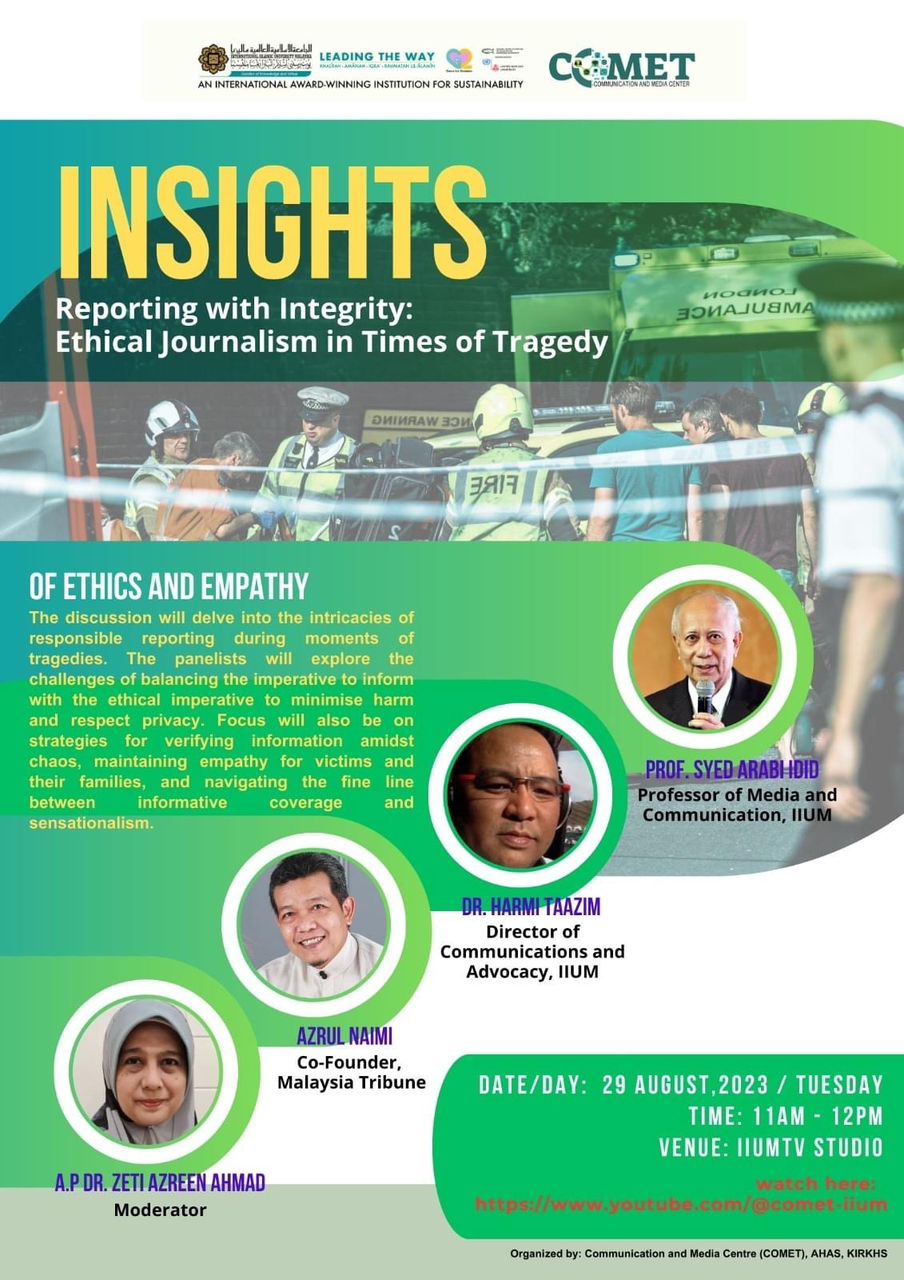By Zeti Azreen Ahmad
A recent incident of a private jet that crashed near the Elmina township in Shah Alam, Malaysia, shocked the entire nation. The tragedy killed eight people who were onboard and two road users. Beechcraft Model 390 crashed just a few minutes before landing at the Sultan Abdul Aziz Shah Airport. The tragic incident was captured instantaneously by road users who passed by the area via mobile phones and dashcams. A gruesome scene of the jet that made a banked turn before the crash went viral in less than 24 hours. Netizens in no time were committed in providing updates via social media particularly through WhatsApp. Details of the victims were disclosed via social media earlier than news portals. The impulsive enthusiasm of sharing information that is yet to be known by others has been contagious. The question now is do we really care and want to help? Do we care to think of what the victims families feel after watching the horrifying videos or images? Would other observers and bystanders be traumatised with the content shared?
Most netizens are not journalists thus they may neither be aware nor adhere to the standards of ˜ethical reporting. However, living in the user generated content era, netizens should be more mindful of what they post. Despite the intention to share the ˜unfiltered and original images for public consumption, such actions may create adverse impacts on others especially on the next of kin and relatives. Citizen journalists, in the absence of the media gatekeeper, may spread unfortunate news to victims families solely through the mobile screen.
Drawing from the legal perspective, the postings or sharing of the photos of victims involved in a tragedy is not only violating the basic ethics of reporting but subject to legal action (Section 233 of the Communications and Multimedia Act 1998). In addition, sharing the victims photos or videos may hurt their families and likely degrade the dignity of the victim hence is not permissible in Islam.
Accidents and tragedies happen every now and then and continue to make breaking news. Netizens who happened to be at the scene of the plane crash should have been more mindful of what they were going to share across the media platforms once they recorded the incident. Netizens ought to be more conscious of their intention to share and be more thoughtful in posting information as some information may not be true thus misleading the audience. It is worth remembering that the noble intention to share instant updates may create misery for others.
Unlike netizens, journalists working in media organisations may take some time to report news as all facts need to be verified by credible sources. The importance of accuracy in reporting was emphasised by renowned Media and Communication scholar, Professor Dato Sri Dr Syed Arabi Idid in the INSIGHT webinar on ˜Reporting with Integrity in Times of Tragedy organised by the Communication and Media Centre (COMET) of the International Islamic University Malaysia (IIUM) recently. He stressed on the importance of using reliable sources; by referring to those who know about the actual situation or those who are in authority to provide the information. Additionally, he also identified three other elements that are equally important in ethical reporting that include speed, fairness and balance. In terms of speed, journalists need to be fast in providing the news to meet the needs of the audience. Besides, they should also be fair to the subjects they are covering; in relation to the tragedy the news reported should be fair and sensitive to the next of kin.
Azrul Naimi, the co-founder of Malaysia Tribune stressed on the importance of giving space to the family members of the victims. Journalists should make sure that the family members are comfortable to be interviewed during the trying time. He said, journalists should be considerate and provide space to the next of kin rather than merely thinking about deadlines. Another issue highlighted was the tendency of providing the detailed description of victims or using gruesome images from a tragic incident, which may cause distress to readers and affected families. In a nutshell, at times of a tragedy, journalist must exercise discretion and be more empathetic in their reporting. ***
INSIGHT is a monthly social science webinar organised by COMET.
(The article was written by an academic of the Department of Communication and member of COMET, AbdulHamid AbuSulayman Kulliyyah of Islamic Revealed Knowledge and Human Sciences, IIUM, Assoc. Prof. Dr. Zeti Azreen Ahmad.)
- Islamic University VC Engages with IIUM Community on Integrating Shariah Law into Bangladesh’s Legal System - January 28, 2026
- SISCO Launches Certified Course on Visionary Leadership and Community Engagement at IIUM - January 28, 2026
- Memorandum of Understanding (MoU) Signing Ceremony between IIUM and Aafiyat Holdings Sdn. Bhd - January 28, 2026
